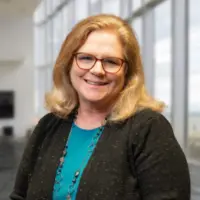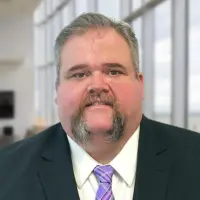The Village Network it's a very nice place, and they have exceptional people working there that genuinely care about helping others.
About Village Network
The Village Network on Akron Road in Wooster, Ohio, has more than 75 years of experience caring for children, youth and families experiencing crisis or dealing with mental health and behavioral issues. They provide residential and therapeutic foster care programs, detention facilities, and transitional housing and treatment programs.
Most young people who come to the village are dealing with big emotions and major traumas in their life. Unstable home life can contribute to mental illness, behavioral issues, addictions, and acting out physically, emotionally or sexually. The children and youth who receive care at The Village are taught a sense of self-worth, unconditional acceptance and how to set positive goals for the future. They are given a stable therapeutic environment to heal from the past and gain strength and skills for the future.
The EFAS Girls Group Home on Akron Road serves young girls and women between the ages of 10 and 20. They have been helping clients through this residential program since 2016. They utilize expressive therapies along with family, group and individual therapy sessions. Activities like play, music, equine therapy and horticultural arts are all part of the extensive recreational therapy aspect of treatment. The average stay at this program is approximately six months.
They also use philosophies such as the Neurosequential Model of Therapeutics. They apply Collaborative Problem Solving and motivational interviewing and other trauma-informed, evidence-based therapies to ensure each young woman has the resources and therapeutic tools to overcome challenges. The goal is to prepare women to be productive, happy, positive members of society as they continue through life.
Education, socialization, support and healing are all a part of the goals for each child and youth. They provide support to struggling families and to those connected to the foster care system, the youth detention system, human services, and child wellness agencies.
Most major insurance, including state and federal Medicaid and Medicare, are accepted. It is vital that you verify with your personal health insurance provider what coverage you have and whether you will be financially responsible for any costs out of pocket.
Latest Reviews
Rehab Score
Gallery
Accepted Insurance

Other Forms of Payment
Medicaid is a state based program that helps lower-income individuals and families pay for healthcare. Medicaid covers addiction treatment so those enrolled can use their coverage to pay for rehab. When a program accepts Medicaid the client often pays very little or nothing out of their own pocket.
Private insurance refers to any kind of healthcare coverage that isn't from the state or federal government. This includes individual and family plans offered by an employer or purchased from the Insurance Marketplace. Every plan will have different requirements and out of pocket costs so be sure to get the full details before you start treatment.
Self-pay involves paying for treatment out of your own pocket. You can use savings or credit, get a personal loan, or receive help from family and friends to fund your treatment. If you don't have insurance or your insurance plan doesn't cover a specific program, self-pay can help ensure you still get the care you need.
Addiction Treatments
Levels of Care
Residential treatment programs are those that offer housing and meals in addition to substance abuse treatment. Rehab facilities that offer residential treatment allow patients to focus solely on recovery, in an environment totally separate from their lives. Some rehab centers specialize in short-term residential treatment (a few days to a week or two), while others solely provide treatment on a long-term basis (several weeks to months). Some offer both, and tailor treatment to the patient's individual requirements.
Treatments
Many of those suffering from addiction also suffer from mental or emotional illnesses like schizophrenia, bipolar disorder, depression, or anxiety disorders. Rehab and other substance abuse facilities treating those with a dual diagnosis or co-occurring disorder administer psychiatric treatment to address the person's mental health issue in addition to drug and alcohol rehabilitation.
Mental health rehabs focus on helping individuals recover from mental illnesses like bipolar disorder, clinical depression, anxiety disorders, schizophrenia, and more. Mental health professionals at these facilities are trained to understand and treat mental health issues, both in individual and group settings.
Programs
Young adulthood can be an exciting, yet difficult, time of transition. Individuals in their late teens to mid-20s face unique stressors related to school, jobs, families, and social circles, which can lead to a rise in substance use. Rehab centers with dedicated young adult programs will include activities and amenities that cater to this age group, with an emphasis on specialized counseling, peer socialization, and ongoing aftercare.
Clinical Services
Cognitive Behavioral Therapy (CBT) is a therapy modality that focuses on the relationship between one's thoughts, feelings, and behaviors. It is used to establish and allow for healthy responses to thoughts and feelings (instead of unhealthy responses, like using drugs or alcohol). CBT has been proven effective for recovering addicts of all kinds, and is used to strengthen a patient's own self-awareness and ability to self-regulate. CBT allows individuals to monitor their own emotional state, become more adept at communicating with others, and manage stress without needing to engage in substance abuse.
Whether a marriage or other committed relationship, an intimate partnership is one of the most important aspects of a person's life. Drug and alcohol addiction affects both members of a couple in deep and meaningful ways, as does rehab and recovery. Couples therapy and other couples-focused treatment programs are significant parts of exploring triggers of addiction, as well as learning how to build healthy patterns to support ongoing sobriety.
Dialectical Behavior Therapy (DBT) is a modified form of Cognitive Behavioral Therapy (CBT), a treatment designed to help people understand and ultimately affect the relationship between their thoughts, feelings, and behaviors. DBT is often used for individuals who struggle with self-harm behaviors, such as self-mutilation (cutting) and suicidal thoughts, urges, or attempts. It has been proven clinically effective for those who struggle with out-of-control emotions and mental health illnesses like Borderline Personality Disorder.
Experiential therapy is a form of therapy in which clients are encouraged to surface and work through subconscious issues by engaging in real-time experiences. Experiential therapy departs from traditional talk therapy by involving the body, and having clients engage in activities, movements, and physical and emotional expression. This can involve role-play or using props (which can include other people). Experiential therapy can help people process trauma, memories, and emotion quickly, deeply, and in a lasting fashion, leading to substantial and impactful healing.
Research clearly demonstrates that recovery is far more successful and sustainable when loved ones like family members participate in rehab and substance abuse treatment. Genetic factors may be at play when it comes to drug and alcohol addiction, as well as mental health issues. Family dynamics often play a critical role in addiction triggers, and if properly educated, family members can be a strong source of support when it comes to rehabilitation.
Group therapy is any therapeutic work that happens in a group (not one-on-one). There are a number of different group therapy modalities, including support groups, experiential therapy, psycho-education, and more. Group therapy involves treatment as well as processing interaction between group members.
In individual therapy, a patient meets one-on-one with a trained psychologist or counselor. Therapy is a pivotal part of effective substance abuse treatment, as it often covers root causes of addiction, including challenges faced by the patient in their social, family, and work/school life.
Trauma therapy addresses traumatic incidents from a client's past that are likely affecting their present-day experience. Trauma is often one of the primary triggers and potential causes of addiction, and can stem from child sexual abuse, domestic violence, having a parent with a mental illness, losing one or both parents at a young age, teenage or adult sexual assault, or any number of other factors. The purpose of trauma therapy is to allow a patient to process trauma and move through and past it, with the help of trained and compassionate mental health professionals.
Staff

Richard Graziano
President & CEO

Dave Paxton
Chief Clinical Officer

Tammy Wargo
Chief Human Resources Officer

Linda Den Heijer
Chief Administrative Officer

Martha Welker
CFO

Mark Ingles
Chief Program Officer

Mary Schantz
Vice President of Information Systems

Chad Knupp
Vice President of Facilities & Support Services
Contact Information
3011 Akron Road
Wooster, OH 44691

